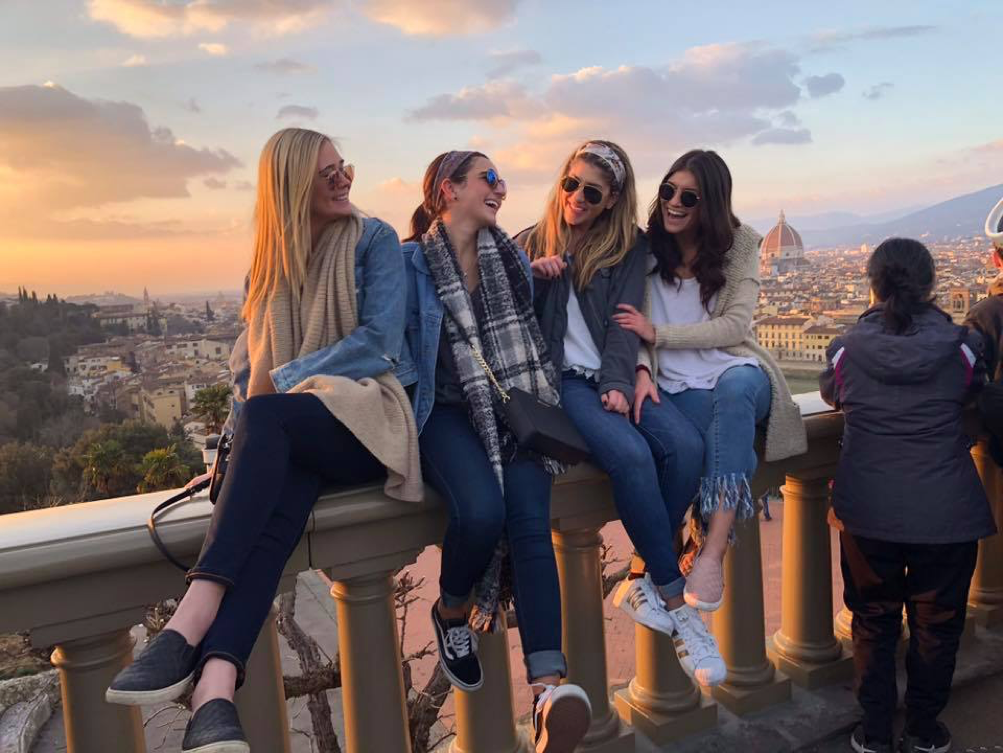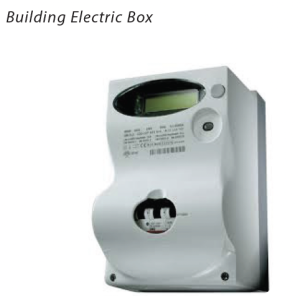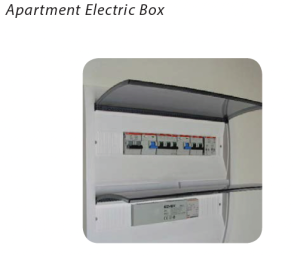Welcome to Florence!
Please carefully read through the following information. What is listed here is intended to help in your adjustment while living abroad in a new city and what to expect as a tenant of campus housing. Accommodations provided through the school may differ than the housing you are used therefore, please be mindful of the possible differences and take the time to understand what can be done to enhance your living within the community. We want nothing more than for you to enjoy your time here in Florence and hope the following information will enable you to do so.
For additional housing rules, please see the Housing Policy on the previous page.

Just like any city, Florence consists of residential neighborhoods throughout. You will notice, most buildings in the city are built in a way that are close to one another. Unlike typical university style dormitories, students may be placed above or below non-students. Many of our accommodations are located in buildings housing local citizens and even families. Therefore, it is important to be mindful of activities within your apartment and general practices of the Florentine community. The city of Florence was built hundreds of years ago, with many of the foundations in their original condition. Though restorations have taken place to update and modernize many buildings, they may differ than what you are used to back home due to their age. Florence places importance on architectural sustainability by reusing buildings as opposed to demolishing and rebuilding them. This makes living in the city extremely unique, just be aware of the difference in standards. Many of the apartments are spread out among the historic center within popular neighborhoods. Generally speaking, Florence is considered small. Keep this in mind depending where your apartment is located. Though it may not seem close to the FUA-AUF campus your classes are held at, in reality, the entire city is walkable by foot. Students with housing through are provided furnished apartments. Depending on your assignment, you will share the apartment with multiple students. Your bedroom will include multiple beds and the common areas are intended to be shared among roommates. Check your housing packet distributed during your arrival check-in for information specific to your assigned apartment.
The following is a list of what you might encounter within your university accommodations. Please note, all of these are typical of the Italian lifestyle.
- No dryer
- No dishwasher
- No microwave
- No elevator
- Limited heat in the winter
- Quiet hours
- No oven (housing standards require either an oven or a microwave but not both)
- Mosquitoes (high season in the summer)
- Frequent power outages (caused by too many appliances being used simultaneously)
IMPORTANT: Keys are the responsibility of the student. Lost or stolen keys
Contact a roommate to let you in, or stay in a hotel until you replace the keys. Students are responsible for replacing lost or stolen keys. Since some keys are specialized, they may incur a hefty cost to replace. Remember to always know where you keep your keys and to never write your apartment address on them in the event of loss or theft.
Be very careful when unlocking your doors, since some keys may take certain maneuvering, in order to prevent breaking them within the door of the building of your apartment. In the event that this may happen, it is important to contact Housing Department immediately, since this may prevent other residents from accessing the building.
PLEASE NOTE: Locksmith services will incur charges which students are responsible for paying, so take caution.
Noise passes easily between walls and floors in Italian buildings, so always observe Italian laws as for the set “quiet hours”. Remember to also be conscientious when in the stairwells late at night and be careful to take shoes off when inside the apartment, as is a common practice for Italians.
Be a good neighbor and your new neighbors will be good to you. Italian law prohibits noisy behavior from 2pm to 4pm and from 11pm to 8am. It is not uncommon for building tenants to call the police if excessive noise is made during these times.
Examples of loud activities:
- Appliances (washing machines, hair dryers, etc.)
- Washing dishes
- Loud Skype calls
- Walking around the apartment with hardsole shoes
- Showering late at night (can be heard through thin walls)
Carefully read the instructions provided to you in your housing packet regarding your apartment’s appliances. When using adapters, do not force anything (plugs, etc.). Check that the appliances and adapters you brought from home will work on Italian voltage before using (and damaging) them. This is important since you can permanently damage your electronic devices if too much power is put into them. In Italy, adapters power between 220-240 volts.
WASHING MACHINES
A typical load takes up to 2 hours to complete, sometimes even longer. Discussing possibly combining loads with your roommates may be a good option to save time and conserve detergent.
Instructions for machines are located on top and under no circumstances should students force open the door of the washing machine. Once a load is complete, a few minutes are needed to pass before the door will unlock. Forcing the door before this time can greatly damage the machine and students will be responsible for replacing parts or the entire unit. Dryers are not used in a typical Italian household.
- Colors Colori
- Whites Bianchi
- Washing Machine Lavatrice
- Detergent Detersivo
- Bleach (for whites) Candeggina
- Detergent for Delicates Detersivo delicato
- Handwash Bucato a mano
- Fabric Softener Ammorbidente
Understanding the differences in lifestyle standards of where you are from can help you assimilate as best as possible to your new home in Florence. Below is information regarding utilities and what to expect.
CONSERVATION & ENVIRONMENTA LAWS
Energy rates in Italy are expensive, therefore, Italians are very practical when it comes to saving their resources. Conservation affects electricity, water, heating, etc. This can be a challenging experience for you but try to regard it as a learning experience!
As a general rule, please remember to:
- Turn off the lights when you leave the apartment or leave a room for a long time.
- Always close and lock all the windows when you leave the apartment.
- Close shutters/ drapes during the hottest part of the day to keep rooms cool in summer and to keep in heat during the winter.
- Make sure to take short showers as a common courtesy to your roommates, otherwise, you may consume all the hot water. 10 minutes is considered a long shower in Italy.
The Italian method: Get wet – turn water off – soap/shampoo – rinse off.
ELECTRICITY
In Italy, a large share of electricity is imported, therefore, utilities can be very expensive and the amount of energy available is limited.
Most apartments have a maximum amount of kilowatts that can be used at one time, and too many electric appliances working simultaneously can result in a power surge and inevitable circuit failure: In that case, you can restore the power by unplugging one of the devices and by flipping the circuit breaker in the main electricity box. Remember to TURN OFF the electrical appliances being used and switch the apartment fuse on. This box could be located either at the entrance of your building or inside your apartment. Refer to your housing assignment information on the Student Portal.
PLEASE NOTE: If your usage is excessive, you may also be charged a supplement for the excess usage
ELECTRICITY BOXES
Electricy output in Italy is 3000 watts. If you use more, the electricity will go out!
Example: Washing Machine uses 2000w + Oven uses 2000w = 4000w (BLACK OUT)
If this happens, TURN OFF the electrical appliances being used and switch the apartment fuse on, found in the building’s electric box. This box could be located either in the entrance of your building or inside of your apartment. Refer to your housing brochure in the student portal.


HEATING
In Italy the official heating season and temperatures are regulated by environmental laws; in Florence, no heating is permitted from April 15th to November 1st, and the maximum allowed temperature for the thermostat is 20C°= 68F°, for a maximum of 8hrs per day.
IMPORTANT: Never touch the thermostat, if you feel the heater is not working properly, go directly to the FUA Student Life office and put in a maintenance request.
AIR CONDITIONING
Keep your apartment cool, and close all windows, curtains, and shutters during the day to prevent the sunlight from heating your flat. After sunset, you can open the windows and let the summer breeze freshen the rooms.
PLEASE NOTE: Regardless of the season, always open all windows for at least 10 minutes every day to let some fresh air in.
It is important to remember to let air steam out of the bathroom or kitchen, in particular, in order to prevent mold from accumulating.
Make sure that you never do this at a time when you are not at home.
TAP WATER
The tap water in Florence is perfectly safe to drink and is subject to strict quality controls, as mandated by legislative decree n. 31 (2001) under the categories of microbiology, chemical, indicators and accessories; the quality of the water distributed by Publiacqua continuously and fully satisfies the requirements set forth by this law. The city offers free high quality purified water fountains where you can fill up your own clean bottles with water, and in some cases, even sparkling water (frizzante). For a list of fountains please visit http://www.publiacqua.it/fontanelli/dove-sono/comune-di-firenze.
PLUMBING SYSTEM
Do not flush anything down the toilet except toilet paper. Any other materials, such as feminine hygiene products, razor blades, or paper towels, will clog the septic tank. This also applies to all school and public buildings. The same applies to the kitchen sink: remember to remove any food bits before you wash your dishes; otherwise, you will clog the pipes. You will be held responsible for any cost of damages.
ROOFTOPS
Florence is famous for its beautiful red-tile rooftops. However, they cannot be stepped on. Under no circumstances may you go onto the roofs – ever!
It is your responsibility to dispose of your garbage daily. A great way to get to know your neighborhood is to take a walk around to locate the garbage bins closest to your building. Never leave any garbage in the apartment stairwell or on the sidewalks, as this is in strict violation of the cohabitation rules in your host city and can result in a fine. The city of Florence recycles paper, plastic, aluminum, glass, and organic matter for compost.
PLEASE NOTE: Soiled paper and paper with plastic layers cannot be recycled. Within the historical center, domestic paper recycling is collected door to door on a given day of the week. To find out on which day of the week paper collection is being carried out in your area, please visit http://www.quadrifoglio.org.
For further information on recycling in Florence, please see http://en.comune.firenze.it/city/environment/waste_and_recycle.html
Since you will be living in close proximity with local citizens and families, it is extremely important to respect their standards of living, such as obeying quiet hours as previously listed.
If your neighbors were to ever contact the police to complain on your behalf, be sure to have your passport and visa on you, be respectful, and be aware that under Italian law, no search warrant is required to enter and search your apartment.
A few tips on friendly cohabitation with locals:
Don’t be afraid to greet your local neighbors.
VISITORS
It is important to be aware of the intentions of people you meet to ensure the safety of yourself and your roommates. Letting unauthorized people into the apartment, due to anti-terrorism Italian law, is not allowed.
Due to the same law, overnight guests are not permitted. Tenants violating this agreement may be asked to vacate the property and may be responsible for paying any police fine.
IMPORTANT: If you ever suspect strange behavior outside of your apartment, immediately call 112 to report it to the police.
In the event that you accidentally spill something within the building’s common area, immediately clean it up. Be mindful of residents coming up or down the stairs at the same time, as some stairwells are smaller than others.
All apartments are cleaned and checked by the housing department prior to check-in. Please abide by the following regulations during your session:
Do not leave any kind of garbage outside the apartment.
Close all the windows when you are not in and when it is raining, or predicted to rain.
Do not move the furniture in the apartment without first checking with the landlord or housing department. The Housing Coordinator will do random house checks for cleaning (24 hours notice is given to residents).
Interventions due to a lack of daily maintenance by students will be subject to a fee.
If students find bed bugs after arrival, they are responsible for any fumigation/ extermination fees (aprox. 300/400€).
*Tips to prevent bed bug infestation: do not travel with your own pillow, never put your suitcase on your bed after returning, it is wise to insert your suitcase into a large trash bag and tie it closed for 24 hours to kill the potential bedbugs in your belongings, after this, it is suggested to wash your clothes from the suitcase in warm water and air dry before putting them away in your closet or dressers.
IMPORTANT: Students are responsible for paying all housing damages incurred. Unpaid fees will result in account holds and official transcripts will not be released.
In the event that you need something fixed or replaced, please fill out the Housing Troublshooting form found the student portal. You will be requested to describe your matter in detail. It is wise to inform the housing department of any requested maintenance services as soon as issues arise. Waiting until the last minute or close to the weekend may delay issues from being resolved.
PLEASE NOTE: Some maintenance services may incur charges. This depends on the issue and if any damages to university property have taken place. For more information on what maintenance services may incur charges, please email the SLD Office.
Please refrain from calling the emergency line in case of common situations that can only be addressed during office hours. The School has no control over possible temporary interruptions of the supply of water, gas or electricity. We will use our best efforts to solve these or other technical problems that may arise during your stay.
LACK OF HOT WATER
Please consider that in Italy, particularly in old buildings, the standard pressure of water is not very strong, nor is its availability in terms of quantity. Also, before water comes out hot, you might have to let it flow for a few minutes before it heats up. Lack of water supply altogether, is not something we can assist with.
LACK OF GAS
If you do not have gas, it might be that the main gas valve has been left in the security position (closed), especially when you first move into the apartment. The gas valve is usually a stainless-steel lever or valve located on the wall near the kitchen gas range. Try to rotate it. Unfortunately, has we have no control of gas supply to buildings, therefore, this is not something calling the off-hours emergency line can solve.
Please call our 24/h emergency line if:
An emergency is something that is endangering the health and safety of you and your roommates and cannot be postponed to the following day.
FIRE
First reaction: exit the apartment immediately and call the fire department emergency number 115.
GAS LEAK
First reaction: do not turn the lights on; exit the apartment immediately and call the fire department emergency number 115. Please note that in the case of a serious gas leak, it may be dangerous to open the windows, even if this seems like the logical first step
WATER LEAK
First reaction: close the main water valve. If you are unable to find it, try to use a bowl or any other large container to collect as much water as possible and call the fire department emergency number 115.
For emergency situations ONLY, outside of office hours, please contact Emergency number: +39 347-3769632.
After office hours calls should be only for emergency purposes, any abuse will incur monetary charges.
Students will receive housing check-out instructions via email directly from our Housing Office a week before the check-out date.
